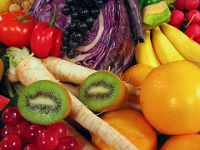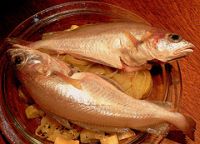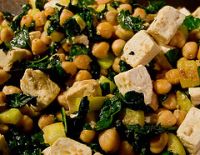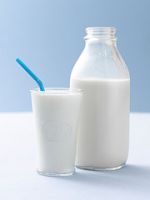Eating For Health And Beauty

What we eat has a profound effect on our health and wellbeing. There is ample evidence of a link between poor diet and poor health, and this will affect the way you look. Shining hair; clear skin and strong nails are synonymous with good health. Specific foods can have a positive impact on your skin, hair, bodies and overall well-being when eaten as part of a sensible, well-balanced diet.
Healthy Hair And Scalp: Aim for a balance of protein foods, including dairy products, nuts and pulses (legumes). Your shopping list should include organic artichokes, sweet potatoes, carrots, spinach, broccoli, asparagus and beetroot (beet). Choose apricots, citrus fruits, kiwi fruit, berries and apples. Also eat plenty of oily fish and shellfish. Dry hair and an itching, flaky scalp may be the result of zinc deficiency. Shellfish are good sources of zinc, as are red meat and pumpkin seeds. Essential fatty acids in vegetable oils, nuts and oily fish can also improve the condition of the scalp, while the minerals in sea vegetables, such as kombu and arame, help to make hair lustrous. Vitamins A and B are important if hair is to be shiny and healthy. Eating liver once a week is a great way of boosting your intake of vitamin A (retinol), provided that you are not pregnant. Fish liver oils are the richest source of retinol, but it can be obtained from eggs and full-cream (whole) milk. Also eat carrots, spinach, red (bell) peppers, sweet peppers, peaches and dried apricots on a regular basis. These contain betacarotene, which the body converts to vitamin A.

Improving Your Skin:
The skin is the largest organ in the body, and is especially vulnerable to the effects of modern living. The most important thing you can do to improve the quality of your skin is to drink water – ideally six to eight large glasses every day. Regular exercise and plenty of fresh air combined with a healthy diet will work wonders on your skin. If you have a specific skin condition, such as eczema or acne, it is important to consult your doctor, but if you merely think your skin is looking a bit lifeless and could do with a lift, you may find the following advice helpful. Eat fresh vegetables such as carrots, spinach, broccoli and sweet potato which deliver the antioxidant betacarotene. Citrus fruit, kiwi fruit, berries, avocados, vegetable oils, whole grains, nuts, seeds and types of seafood provide the antioxidant vitamins C and E, selenium and zinc, which all help to transport nutrients to the skin and maintain collagen and elastin levels. Zinc-rich foods such as liver, pate and eggs can improve conditions such as psoriasis and eczema. Apples are rich in pectin, which helps to cleanse the liver, and so aids skin detoxification. Artichokes are good liver cleansers, too, along with asparagus and raw beetroot. Fish, meat and eggs provide B vitamins, which promote supple, glowing skin. Similar benefits can be gained from eating oily fish such as mackerel, salmon, tuna, sardines and herrings. The fatty acids these fish contain (also found in nuts, seeds and vegetable oils) soften and hydrate the skin.

Healthy Nails:
- Drink plenty of water.
- To strengthen nails, eat iron-rich foods, such as liver, other red meat, fish, poultry, green leafy vegetables, dried apricots and wholegrain cereals. To optimize iron absorption, eat foods rich in vitamin C, such as tomatoes and potatoes.
- Dry brittle nails may indicate a zinc deficiency, and a meal of braised liver with onions and cherry tomatoes once a week may work wonders. Chickpeas and tofu are a good choice for vegetarians.
- Wide ridges may indicate a selenium deficiency which is closely associated with the function of vitamin E in the body. Good sources are meat, especially the liver, fish and shellfish, chicken and wholegrain cereals.
Maximizing Nutritional Value:
To obtain the most nutritional value from your food, especially fruit and vegetables, it should be as fresh as possible, and preparation or cooking should ensure that as many nutrients as possible are retained.

- If you grow your own fruit and vegetables, or buy from a farm where the produce is picked or pulled as needed, freshness is guaranteed. If not, make sure your supplier has a rapid turnover.
- Transport produce home quickly. Remove any plastic wrapping. Store produce in a cool larder or in the refrigerator crisper.
- Avoid buying fresh produce from a supermarket or store that has installed flourescent lighting over displays, as this can cause a chemical reaction, depleting nutrients in fruits and vegetables.
- Buy organic produce where possible, and avoid peeling if you can, since nutrients are concentrated just below the skin. Instead, wash thoroughly. Prepared vegetables are convenient, but don’t peel or slice produce until you are ready to use it, as the nutritional value diminishes rapidly after preparation.
- Try to eat the majority of your vegetables and fruit raw. Otherwise, use a steamer in preference to boiling because during this process soluble vitamins, such as thiamine, vitamin C and B vitamins leach into the water. If you must boil vegetables, use just a little water, and save the water to use in a soup or sauce.
- Buy nuts and seeds in small quantities. Store them in airtight containers in a cool, dark place. Herbs, spices, pulses, flours and grains should be kept in the same way. Store oils in a cool, dark place to prevent oxidation.